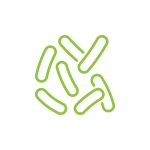Benefits of Beta Factor
Your immune system is your line of defense that protects you from outside gunk that could come in and corrupt your health. It’s one of the most important lines of protection your body and health have separating them between the outside world beyond your skin. For that reason, so many folks are regularly looking for ways to increase their immune system’s system of defence. After all, bolstering your immune system can help keep you from getting sick too often. It can help you feel better on a day-to-day basis. In the long term, you can expect a nice layering of immunity that helps you stay in work and school without falling ill and getting behind on your work.
Don’t let sick days derail your life. Invest in a supplement that can help you support your immune system. Beta Factor works to help promote your immune function through a couple of main avenues. To truly understand the benefits of Beta Factor, you’ll have to understand the ingredients it uses and how those work together in the body to help you stay healthy and happy longer with less exaggerated immune responses every time you get sick.
Beta Factor Has Three Main Cellular Components & Interactions:

Polysaccharides Communication & Storage

Purified Baker’s Yeast Cells

Macrophages Interaction
Polysaccharides
A polysaccharide is one of the main ingredients in Beta Factor that helps to boost the immune system. In its most simplistic form, it’s a large molecule made up of small monosaccharides. These monosaccharides are simple sugars that make up the polysaccharide in tandem with the specialized enzymes that bind the components all together. You’ll also hear a polysaccharide called a “glycan,” and there’s two types of them: homopolysaccharide and heteropolysaccharide. As the latin roots suggest, heteropolysaccharides are made of varied monosaccharides and homopolysaccharides are made up of multiple types of different monosaccharides.
The Function of A Glycan
Polysaccharides or glycans have a wide variety of different functions in nature. Some provide support to cells and tissues and others provide storage of energy.
Glycans that store energy are built differently than those that provide cell communication and support. When they store energy, they fold together to make themselves as dense as possible. They form hydrogen bonds to make the folds tight so that water cannot enter the molecule and dissolve it. This ensures the molecule does not dissolve in cytosol and thus lowers the sugar content in a cell so that more sugar can be taken in. They can even vary the concentration of different nutrients in the cell, therefore allowing the cells of a body to take in more nutrients to store and use when needed.
When glycans are involved with cellular communication they are bonding with proteins or lipids. They’re often used to take a nutrient of substance to a certain area in the body as they can form a quick channel back and forth. In fact, the human body’s immune system is driven by the recognition of the types of glycans, or in this case the bonded glycoproteins on the surface of cells. When it recognizes warning signals from the glycan that has attached itself to invading cells, it can go about attacking those cells faster and decrease the chance of the cells expanding, breeding or taking root at all in the body.
Specific types of glycans are especially well-equipped to function in this exact way.
Purified Baker’s Yeast Cells
Beta Factor specifically uses the glycans that are pulled from purified baker’s yeast cells to accomplish this communication upgrade for your immune system. This specific type of glycan has been rigorously tested and found to act as “adjuvants,” compounds that are regularly used to enhance the effects of vaccines and even the treatments of cancer. Adjuvants act by creating a stronger immune response in the body. As you know from before, glycans bind to proteins that notify the immune system that a cell is a foreign body. Vaccines are often made with only the proteins of a virus or infection. Thanks to the adjuvant delivery system, the body creates a more localized and controlled immune response.
It’s used in vaccines and cancer treatment all over the world and the purified baker’s yeast variety that Beta Factor includes is top-of-the-line.
It functions through a process called the “depot effect.” This slows the release of antigens over a long duration of time and allows the immune system to create a response that entire time. In other words, it allows the immune system to activate itself more effectively and for a longer period of time. This is defined by the ability of the glycans to activate humoral and also cellular immune response.
Macrophages
A macrophage is a specialized cell in your immune system. It’s the exact cell that the glycan is notifying of bacteria or infection. They’re responsible for the detection, phagocytosis (the ingestion of bacteria),and the destruction of other harmful organisms, too. They present antigens to T cells and they are responsible for initiating the inflammatory response by activating surrounding cells. When the purified baker’s yeast adjuvants interact with these cells as glycans, it triggers a quick response and helps the immune system respond faster to any threats. In other words, it lets these macrophages power up and start attacking bacteria and potential viruses quicker than they might have before.
This can help to ward off sicknesses in the early phase and help your immune system create a line of defense against multiple types of viruses and infections as the more it encounters the more frequently it can easily recognize foreign invaders.
Discover the Benefits of Beta Factor Today
Start your regimen now to start building your immune system up on a cellular level. Shop our selection of supplements today.
